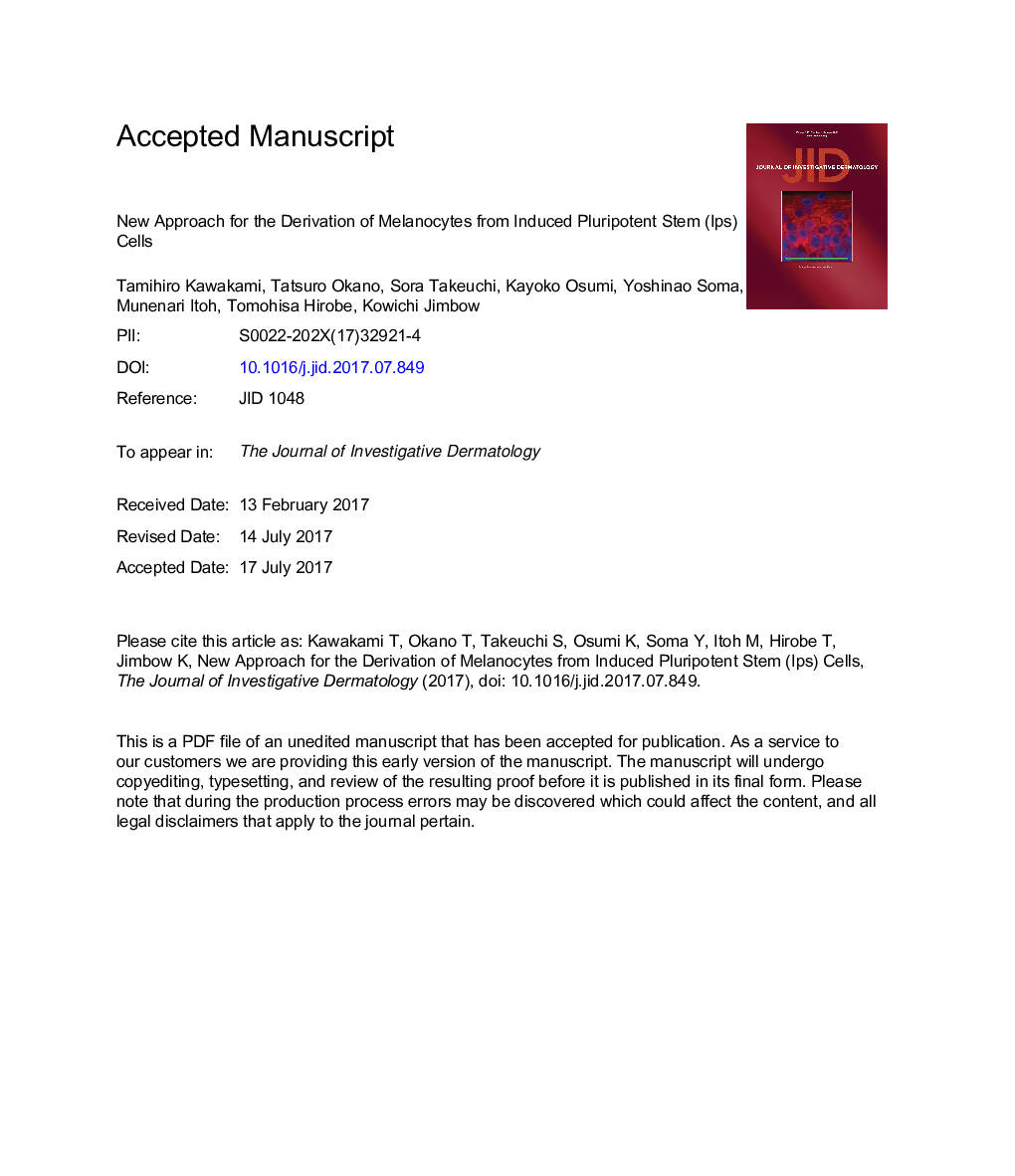| Article ID | Journal | Published Year | Pages | File Type |
|---|---|---|---|---|
| 8716257 | Journal of Investigative Dermatology | 2018 | 39 Pages |
Abstract
Induced pluripotent stem (iPS) cells have the ability to differentiate into multiple cell types in the body and have an unlimited growth potential. However, iPS cell-derived melanocytes produced by existing protocols have significant limitations in developing novel strategies for regenerative medicine and cell therapies of pigmentation disorders in humans because they involve culture in media containing fetal bovine serum and nonphysiological agents. In this study, we established an in vitro approach to generate iPS cell-derived human melanocytes that have higher proliferation rates and increased melanin production compared with melanocytes prepared by previously reported approaches. Importantly, our iPS cell-derived human melanocytes are prepared in fetal bovine serum-free culture conditions that do not contain any nonphysiological agents. We designed two original methods, transferring black colonies by pipette and recovering black cell pellets from centrifuged medium, and numerous human iPS cell-derived melanocytes proliferated in gelatinous dishes coated with Matrigel after 12 days. We also succeeded in inducing melanin pigmentation in the nude mouse skin in vivo using those human iPS cell-derived melanocytes. We propose that this method using iPS cells established from T cells in the blood of normal human volunteers could be applied clinically to develop regenerative medicine and cell therapies for various forms of human pigmentation disorders.
Keywords
Related Topics
Health Sciences
Medicine and Dentistry
Dermatology
Authors
Tamihiro Kawakami, Tatsuro Okano, Sora Takeuchi, Kayoko Osumi, Yoshinao Soma, Munenari Itoh, Tomohisa Hirobe, Kowichi Jimbow,
